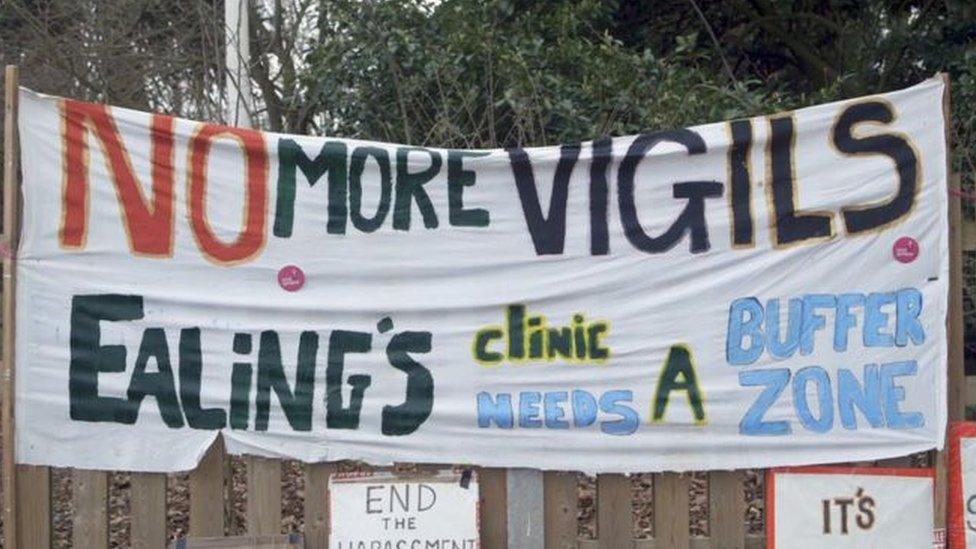New calls for buffer zones around UK abortion clinics
- Published
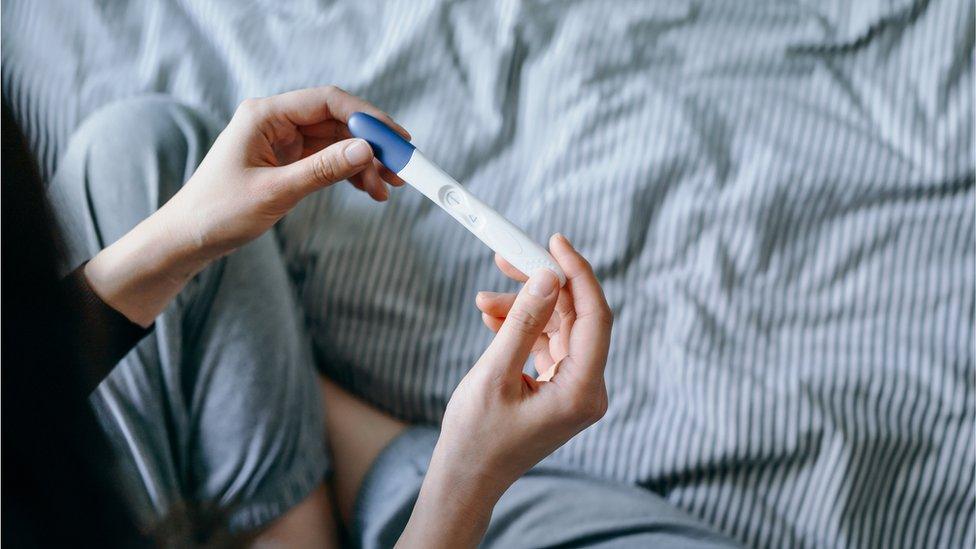
Medical leaders in the UK have launched a fresh call for buffer zones to be set up around abortion clinics to prevent activists targeting patients and staff.
The Faculty of Sexual and Reproductive Healthcare (FSRH) wants a nationwide network of legally-protected spaces to be set up to shield patients from harassment and intimidation.
Anti-abortion groups said their gatherings are designed to offer help.
The government says it is reviewing the issue in England and Wales.
It comes as Scotland's First Minister, Nicola Sturgeon is expected to chair an emergency summit on buffer zones next month. She has said the Scottish Government is now "actively considering" how Holyrood can legislate on the issue.
The UK's first so-called buffer zone was set up outside an abortion clinic in the London borough of Ealing in 2018.
Pro-choice campaigners had hoped buffer zones would become the norm. But only two more have been created in England since 2018.
The FSRH represents more than 14,000 UK healthcare professionals, a majority of whom are doctors.
FSRH president Dr Asha Kasliwal said harassment and intimidation outside clinics affected both patients and staff and caused "great distress" for women and girls accessing abortion care.
"The only way to ensure patients are able to access healthcare free of harassment and intimidation is the legal implementation of buffer zones," she said.
Anti-abortion campaigners described their gatherings outside abortion clinics as prayer vigils meant to offer support and said that rolling out buffer zones would "criminalise prayer".
'Unacceptable'
The British Pregnancy Advisory Service said 50 new clinics had been targeted by protesters in England and Wales since 2018.
Dr Edward Morris, president of the Royal College of Obstetricians and Gynaecologists said abortion care was "an essential sexual and reproductive health service" and buffer zones "must be introduced to ensure that the privacy and rights of those who access these services are respected".
"The harassment and ongoing intimidation of women and staff outside of abortion clinics is unacceptable and would not be tolerated for any other healthcare service," he added.
The idea of buffer zones for England and Wales was rejected by the government in 2018, following a review.
But in 2020 Home Secretary Priti Patel pledged the government would again review the rules around protests in the vicinity of abortion clinics.
An amendment to the Public Order Bill to introduce protest-free areas around clinics has been tabled by a cross-party group of MPs and is expected to be debated in June.
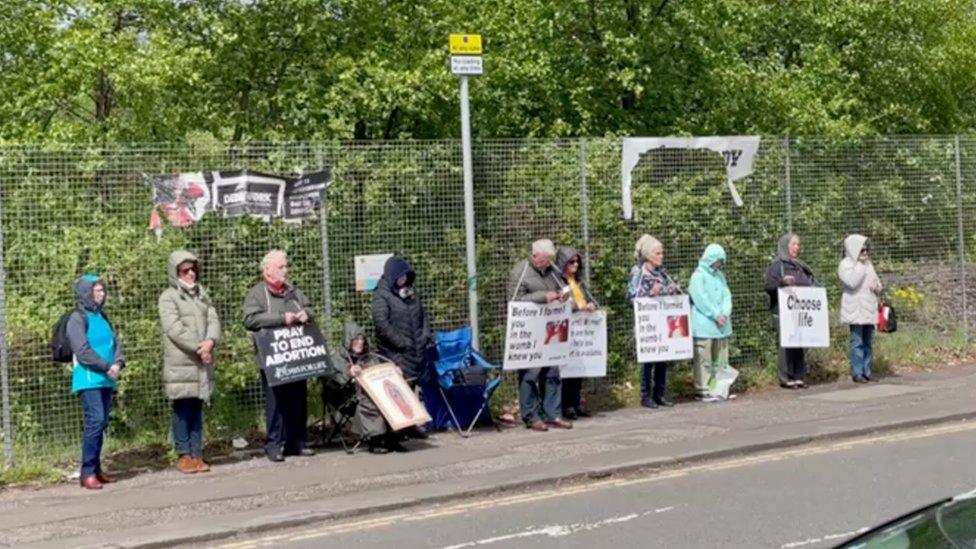
In April more than 100 people attended a vigil outside Queen Elizabeth University Hospital Glasgow
The Home Office said police and local authorities already have powers to restrict harmful protests but confirmed buffer zones remains under review.
A spokeswoman said: "The right to protest is a vital part of a democratic society, but it is completely unacceptable that women accessing healthcare services should feel harassed or intimidated."
Correction 16th June 2022: This article originally reported that the FSRH represents more than 14,000 doctors and has been amended to clarify that this figure refers to the number of healthcare professionals represented by the organisation, a majority of whom are doctors.

FROM MUSICIAN TO RESTAURANTEUR: How to turn your passion for food into a business
'IT'S NOT A FLAW, IT'S A GIFT': The quiet power of introverts

- Published18 May 2022
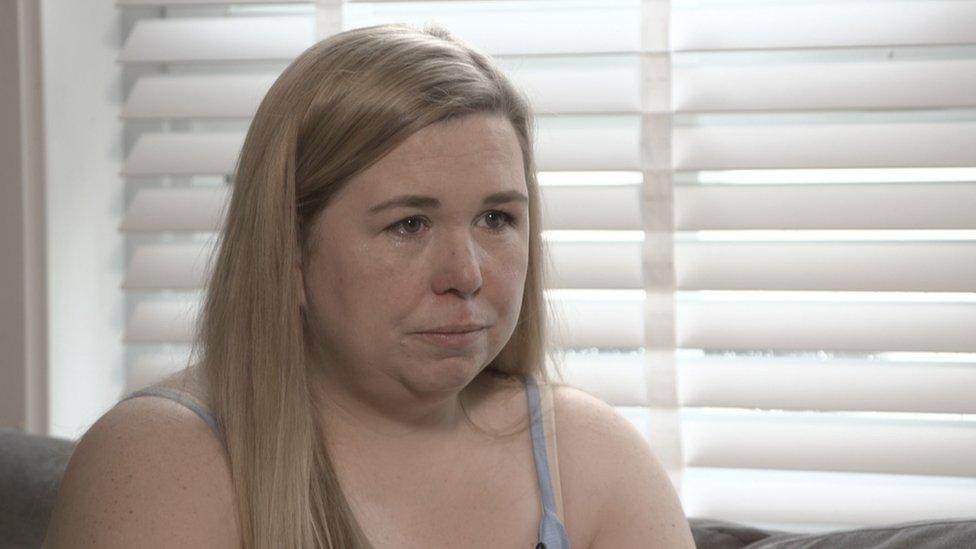
- Published21 August 2019
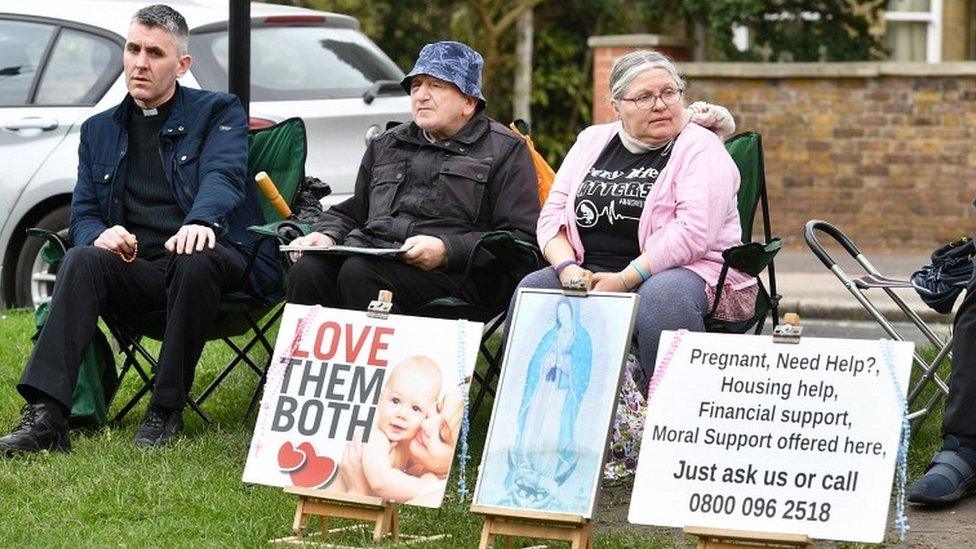
- Published7 June 2018
